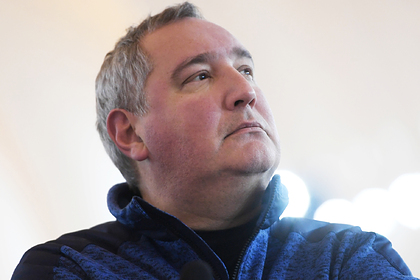Saint-Petersburg. June 5. INTERFAX-Roscosmos does not rule out NASA's participation in the project of a new space station, but this issue will be resolved later, the head of the state corporation Dmitry Rogozin told Interfax.
"We are at the very beginning of the journey. We are still talking about the technical side of the matter, and participation, whether international or purely national, is an issue that will be resolved at a later stage, " Rogozin said, answering the relevant question.
The day before, Rogozin held talks with the head of NASA, Bill Nelson. According to Roscosmos, Nelson accepted Rogozin's invitation to visit Russia and offered to extend the work of the ISS until 2030.
Rogozin, in turn, noted that the discussion of the future fate of the ISS is possible only after the lifting of US sanctions against Roscosmos enterprises.
Earlier, Rogozin reported that he and the head of NASA plan to discuss the future of the ISS. He noted that Russia may abandon plans to leave the ISS after 2025, if it is possible to agree with the United States on the commercial use of the Russian segment of the station.
In April, he reported that Roscosmos admits that the promising Russian space station will be visited by international crews.
Earlier it was reported that Russia may withdraw from the ISS project from 2025, transferring responsibility for its segment to the station's partners. At the same time, the executive director of Roscosmos for science, Alexander Bloshenko, said that Russia can continue to support its segment with the financial participation of the United States.
The alternative is to create a national space station, the first module of which is planned to be launched in 2025, and to complete the deployment in 2035.
As the head of Roscosmos reported, the cost of maintaining the Russian segment of the ISS after 2025 will be comparable to the creation of a new station. According to him, the state corporation is ready to start creating a new station now and is waiting for the relevant instructions of the government and the president.
The new station will not be permanently inhabited, like the ISS, but visited because of the increased radiation danger. The President of the Russian Academy of Sciences, Alexander Sergeev, noted that robots and artificial intelligence are planned to be used at the station.
According to the head of the flight of the Russian segment of the ISS, Vladimir Solovyov, at the first stage, the station will consist of four modules, and in the future their number will increase to six. The crew of the station will be two to four people, the volume of the hermetic compartments will be 667 cubic meters at the second stage. At the same time, the number of external jobs will reach 48. Astronauts will visit the station once or twice a year, and it is also planned to send up to three cargo ships a year to the station.
Russia will be able to finance the construction of a new orbital station itself, but it is also ready for cooperation, Deputy Prime Minister Yuri Borisov said on April 19, noting that the station can be "a kind of intermediate point for flights and exploration of the Moon, lunar space."

